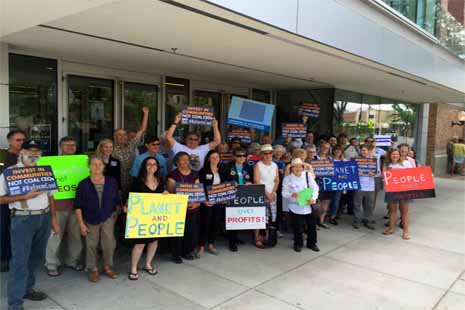Election years are great opportunities for our nonprofit groups to elevate issue campaigns and get candidates to discuss their public policy platforms. Our members and supporters look to WORC and the member organizations to focus attention on important concerns and to get greater exposure for their issues.
“501c3 charities” is a shorthand IRS designation for nonprofit organizations, which includes the eight groups in the WORC network. Because 501c3 charities have tax-exempt status and are able to receive tax-deductible contributions, they have to restrict campaign-related activities, such as endorsing candidates.
Federal law, however, allows groups like ours to engage in issue advocacy during election season, as long as the communication doesn’t say how to vote on a specific candidate or group of candidates.
Permitted activities include:
- Communicating positions on issues;
- Efforts to influence the public on subjects, such as environmental protection, or persuade an elected official to vote for or against legislation; and
- Encouraging the public to ask elected officials to vote for or against legislation.
Staff employed by a 501(c)(3) may work on a political campaign outside of their designated work hours or while using their available leave time. They may not use their employer’s equipment or facilities to provide support or to oppose a candidate or campaign.
Ballot measures
Ballot measure work is allowable during election season for groups like ours. As long as nonprofit groups stay within the limits of lobbying, advocating for the passage or defeat of a ballot measure is considered nonpartisan activity. However, lately ballot measures are increasingly identified with a candidate who has publicly endorsed or opposed the measure, so groups should be careful to focus clearly on the substance of the measure. Ballot measure activities are often subject to registration and reporting requirements at the state level.
There are gray areas with federal and state laws, so groups should seek legal counsel to conduct a risk analysis of any activity your group may undertake during election season.

